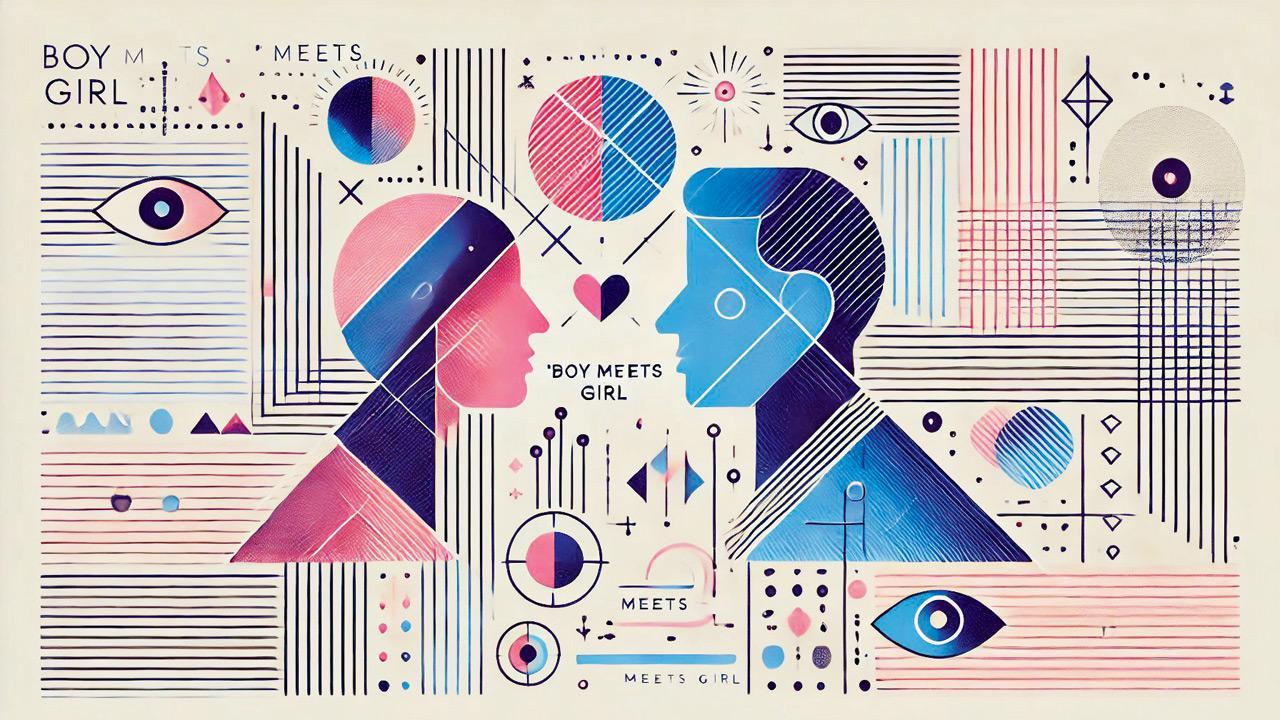
There is something conclusively damning about waving your hand to the left. That little movement says, without using words, “Dismissed!” Rejected. Unworthy.
Waste of time. Ugh. Ewww.

A medieval king in his court could have a petitioner taken away in mid-sentence by slightly shifting his left hand to the left in royal rejection. A political leader could dismiss an entire opposition party by moving his left hand a few inches further to the left. It’s India’s toilet hand and the world’s trash hand.
Its online version is swiping left, most commonly encountered in dating apps like Tinder, Bumble, Hinge and so on. For those unfamiliar with them, let me explain. I’ll assume a male user rather than imagine what a female user sees.
Upon launching the app, he will be shown a glossy image of a female, most likely tweaked, touched up and enhanced till even she cannot believe her eyes.Let’s talk about Bombai. Click the QR code above to join my WhatsApp group to share your Bombai stories for my book—and perhaps answer some of my Bombai questions.
There may be several photos, showing her dressed like a Kardashian, posed thrillingly against exotic Paris, the dunes of Dubai or the pyramids. Even if she is a street food vendor in real life, online she can be classy, unattainable and bewitching. Scrolling will reveal sketchy details such as height, education, marital status, distance from your location, languages spoken and a few key-words indicating what she likes or looks for.
The details don’t say much. Most men skim quickly through the selfies, coming rapidly to conclusions about character, disposition and compatibility. In a few seconds, they will reach the swipe moment—left or right? Swiping right will send a message to her that someone has ‘liked’ her; left will take him to the next girl in the queue.
It is fashionable to deride how dating apps promote skin-deep judgements based only on looks, skin colour and demeanour, but a Tinder boy-meets-girl is no different from a traditional Indian dikhava where a prospective bride is paraded briefly before her hopeful match. Even if they meet, it will be a shallow evening of best behaviours and fake smiles. A matrimonial wish list, whether presented in an ad or a parental discussion, carries details just as superficial as a Tinder profile.
Years later, when conversations have run dry and they sleep in separate rooms, do they wonder if they should have done something different in those first few meetings? Here are four things I’ve learned.1.Pay attention to the words.
Everyone wants to be seen. From the first moment of the first meeting, they will signal who they are by word, look and gesture. The first words, the first questions, the first smiles, the first nods, the first pupil dilations, everything is a self-reveal.
So too are the words that are avoided, never said. Words not spoken can be toxic and painful when they finally emerge—in the 14th year of your marriage.We are not taught to pay attention to these signs.
Instead we imagine who this person is, projecting our hopes and wishes on them, seeing what we want to see. Soon we have created our fantasy narrative about them. You will have the rest of your marriage to discover who they really are.
She may be a child of abuse, estranged from her father. She tells you, however, that she has no father. You are so sorry to have inadvertently brought up such a painful topic.
You never mention it again. He may never say Thank you or Sorry. You explain this to yourself that he believes in showing, not saying.
2. Find out what words mean to them. Words like caring, love, help and happiness.
These are words defined for each of us differently by our families and childhoods. Relationship coach James Michael Sama says, “Months, years or even decades of being treated a certain way writes a story in your mind about what love means. And what caring, help and happiness look like.
”For you, help might mean lending a hand. To the other person it could be, “I’m going to do this for you, but now I own you and you have to do this for me.” 3.
What are their friendships like? If you decide to marry, you will do many things friends do: travel together, talk all night, binge-watch movies, and share secrets. You will also do one thing friends don’t typically do: have sex. The friends they pick and how they are with them will tell you a lot about what your life together will be.
Are the friendships full of drama? Do they endure? Is there trust? Suspicion? Forgiveness? What you see in their friendships is what you will get in your marriage.4. How do they take care of themselves? The time will come when one will be called to take care of the other.
Health will fail, knees will collapse and age will creep up. You don’t know whose name will be called first but no one can take care of someone else better than they take care of themselves. Pay attention to this in those early days, and you’ll learn what to expect from your future together.
Ask these questions, and if you like the answers, why wait? Swipe right.You can reach C Y Gopinath at [email protected] your feedback tomailbag@mid-day.
comThe views expressed in this column are the individual’s and don’t represent those of the paper..















